219 Views
Folic acid vitamin B9
Folic acid is the parent compound of a family of naturally occurring derivatives known as folates.
Folate is the generic term for compounds that exhibit the biological activity of folic acid.
Description
DNA and RNA synthesis in growing and dividing cells
Synthesis of structural and functional proteins
Aids in the protein metabolism
Necessary for brain function, being concentrated in the spinal and extracellular fluid
Essential for mental and emotional health
Regulates the embryonic and foetal development of nerve cells
Helps prevent intestinal parasites and food poisoning
Aids the performance of the liver
Deficiency effects
Poor memory is an early sign (RNA seems important in the storage of recent memory events)
Poor growth and interferes with cell regeneration
Greying hair
Glossitis (tongue inflammation)
Gastro-intestinal-tract disturbances
Anaemia that cannot be corrected by supplementary iron (meggaloblastic anaemia)
Irritability, forgetfulness and mental sluggishness
Cracks and scaling of the lips and corners of the mouth
Restless leg syndrome
Antagonists
Physical and emotional stress
Oral contraceptives – increases oestrogen, lowers folic acid levels
Alcohol
Pregnancy and lactation
Heat, light and oxygen all tend to destroy folic acid
Dilantin and myselin destroy folic acid.
Sulphur drugs may interfere with bacteria in the intestine which manufacture folic acid.
Amino-protein and streptomycin also destroy folic acid
Medical uses:
Treatment for anaemia
Diarrhoea
Sprue – gastrointestinal problem caused by malabsorption of nutrients
Dropsy
Stomach ulcers
Menstrual problems
Leg ulcers
Glossitis
Circulation for atherosclerosis
During pregnancy
Mental deterioration
Better vision
Any kind of hair loss.
Muscle pain
Dermatitis
Eczema
Infant dermatitis
Depression
Dosage
Adult: 150-400 micrograms daily. In pregnancy 800 micrograms, lactation 600 micrograms.
Special need for the vitamin is increased during pregnancy to guard against foetus deformities such as cleft palate, brain damage, slow development, premature birth and poor learning ability.
Toxicity
No known toxic effects
Rapid growth: pregnancy, lactation, childhood, and adolescence
Heavy alcohol use
Deficiency of ascorbic acid and/or vitamin B12
Signs and Symptoms of Deficiency
Atrophy of digestive tract epithelium: reduced absorption of nutrients, diarrhoea, anorexia, and weight loss
Anaemia: easy fatigue, weakness, shortness of breath, decreased ability to concentrate
Reduced production of platelets can increase risk of abnormal bleeding
Impairments in white blood cell development reduce immune response
Elevated blood homocysteine with increased risk of atherosclerosis
Irritability, hostility, forgetfulness, paranoid behaviour, depression
Impaired foetal growth and development, birth defects
Good Dietary Sources
Wheat germ. Kidney beans, Spinach, Broccoli, Calf liver, asparagus, liver kidney and muscle meats, orange juice, brewer’s yeast, germ and bran of wheat, sweet potatoes, cantaloupe, corn, pumpkin, egg yolk.

